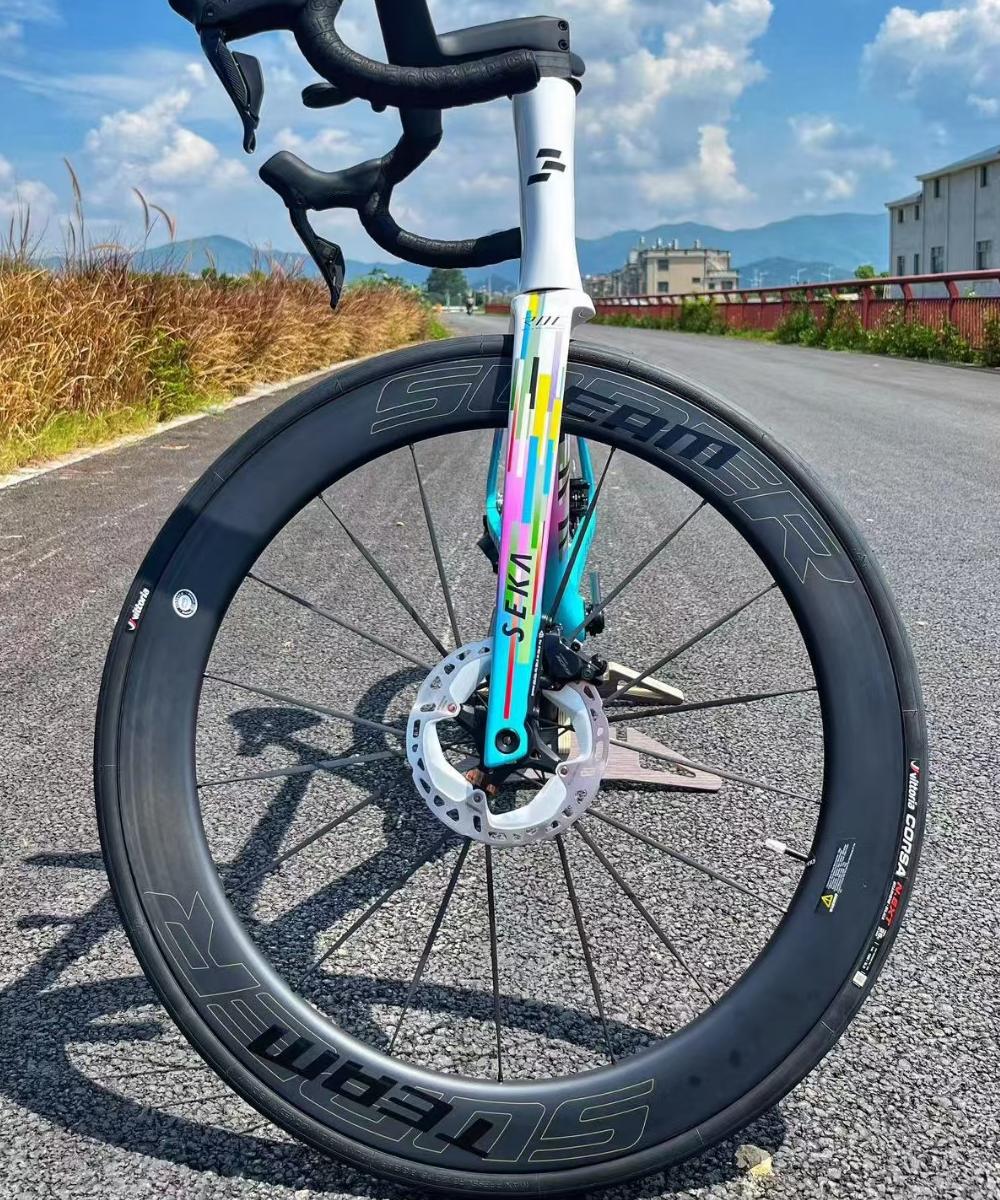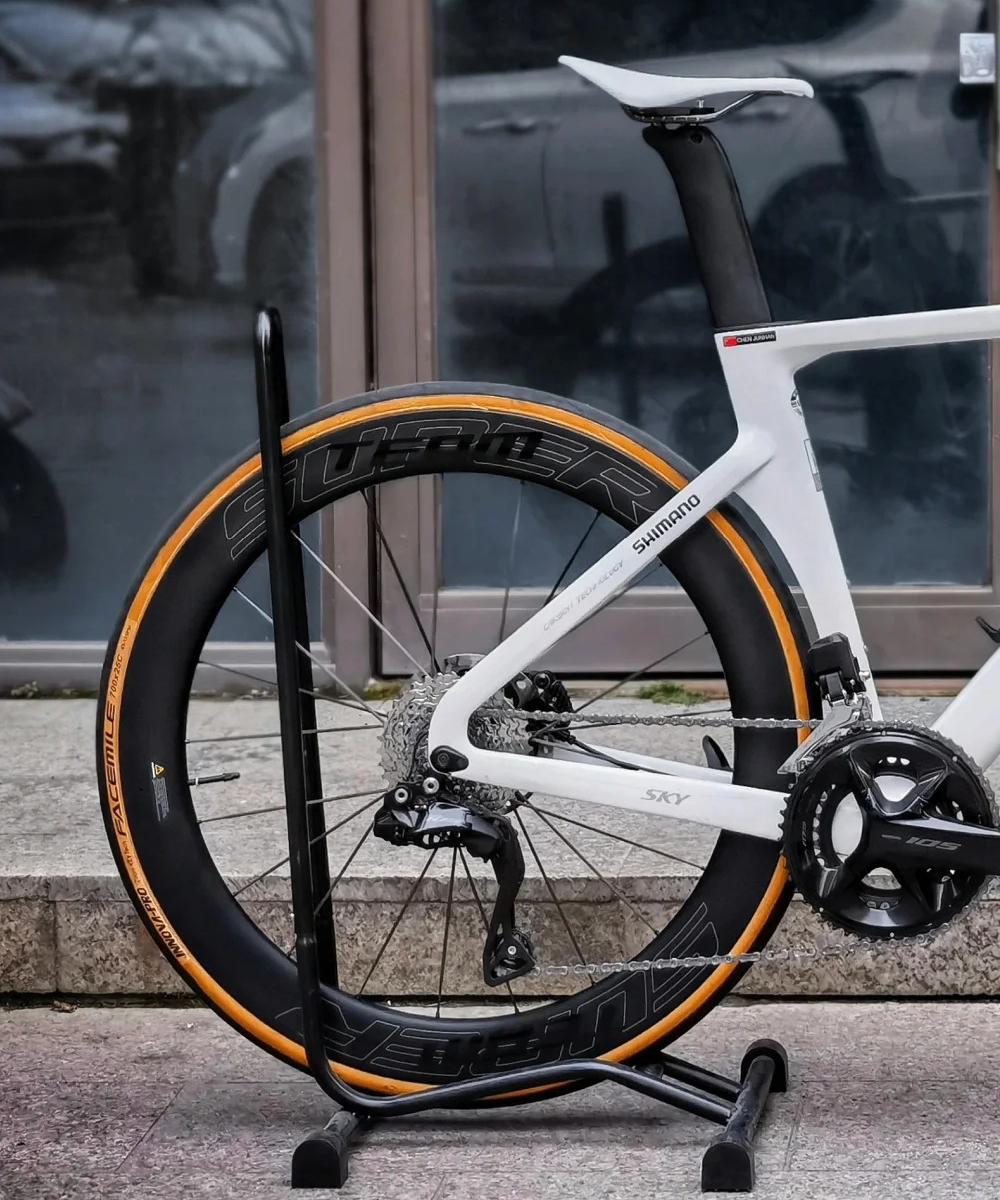How Much Do Bike Wheels Really Affect Your Speed? Science & Myths
Separating Facts from Marketing Hype
Quick Summary
Bike wheels are often marketed as the easiest upgrade to instantly make you faster. But how much do bike wheels really affect your speed? This article breaks down the science, debunks common myths, and helps you understand whether upgrading to carbon wheels is truly worth it for your riding style.
Do Bike Wheels Actually Make You Faster?
Yes, but it depends on the wheel type, terrain, and rider.
Bike wheels impact your speed in three key ways:
Rotational weight (moment of inertia)
Aerodynamic drag
Rolling resistance
Let’s break them down.
⚙️ 1. Rotational Weight: Lighter Wheels Accelerate Faster
The biggest impact of wheel weight is on acceleration and climbing.
Because wheels are rotating, their weight has a greater effect on how quickly you can spin them up compared to the frame weight.
Real-World Impact:
On long, steady rides, the speed difference from wheel weight is small. But when you attack hills or frequently accelerate, lighter wheels can save you precious watts.
2. Aerodynamics: Deep-Section Wheels Save Watts
Wheel depth has a huge influence on aerodynamic drag.
Shallow rims (30–40mm): Light, stable, but higher drag
Mid-depth rims (40–60mm): Balance of aero and weight
Deep rims (60mm+): Max aero benefit, best at high speeds
Key Science:
Aerodynamic drag is the biggest resistance factor above ~25 km/h. Deep-section wheels reduce drag by smoothing airflow.
Real-World Impact:
A good aero wheelset can save 20–40 watts at race speed (~40 km/h), which translates to minutes over long distances.
3. Rolling Resistance: Tires Matter More Than Wheels
Many cyclists overestimate the wheel’s influence on rolling resistance.
Actually, tires, tire pressure, and road surface play a much bigger role.
Low rolling resistance tires = faster
Tubeless setups reduce friction and improve comfort
Wider tires at appropriate pressures are often faster than narrow ones
Upgrading your tires may deliver more noticeable speed gains than wheel changes alone, especially for everyday riders.
Myth vs. Reality: Do Wheels Always Make You Faster?
|
Belief |
Fact |
|
Carbon wheels make you instantly faster |
Only if you ride fast enough to benefit from aero gains |
|
Deep rims are always better |
Only at high speeds, they can be unstable in crosswinds |
|
Lightweight wheels are best for all terrain |
They excel on climbs, but aero wheels outperform on flats |
|
Expensive wheels always save a big time |
Gains can be marginal for casual riders under 30 km/h |
Who Should Upgrade Their Wheels?
✅ Racers / Competitive Riders: Aero wheels offer meaningful time savings
Climbers: Lightweight wheels improve acceleration and climbing efficiency
Gravel Riders: Strong, tubeless-ready wheels with wider internal widths
Everyday Cyclists: Upgrading tires and using tubeless can deliver better results than chasing premium wheelsets
Pro Tip:
If your average speed is under 28 km/h, you may not fully benefit from deep aero wheels. Lightweight or mid-depth wheels could offer a better balance for you.
Our Recommendation: Superteam Wheelsets
At Superteam, we offer race-ready carbon wheels at affordable prices, including:
Lightweight climbing wheels
Aero mid-depth wheels
Gravel tubeless wheelsets
All tested for durability, speed, and riding comfort.
Explore our latest carbon wheelsets [here].
Final Thoughts
Bike wheels absolutely affect your speed, but the benefit depends on how and where you ride.
Aerodynamics help most at higher speeds. Lighter wheels help on climbs. And tire choice often makes the biggest difference for average riders.
Want personalized advice? Contact our Superteam team and we’ll help you find the perfect wheel upgrade.




